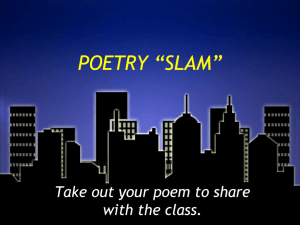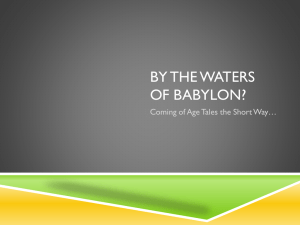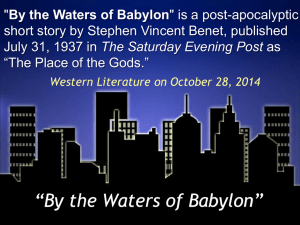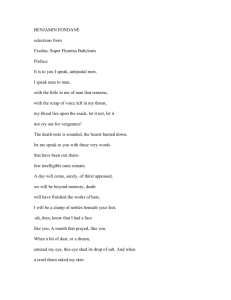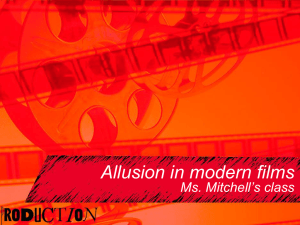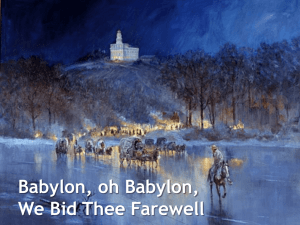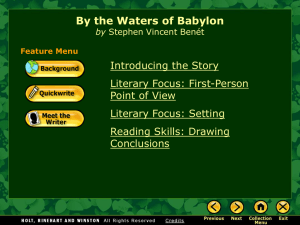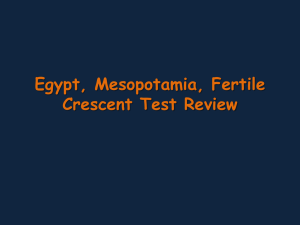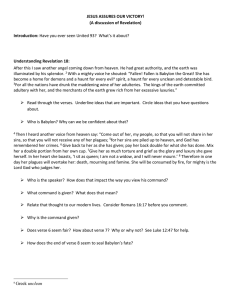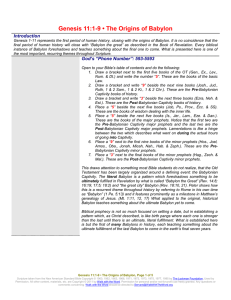By the Waters of Babylon
advertisement
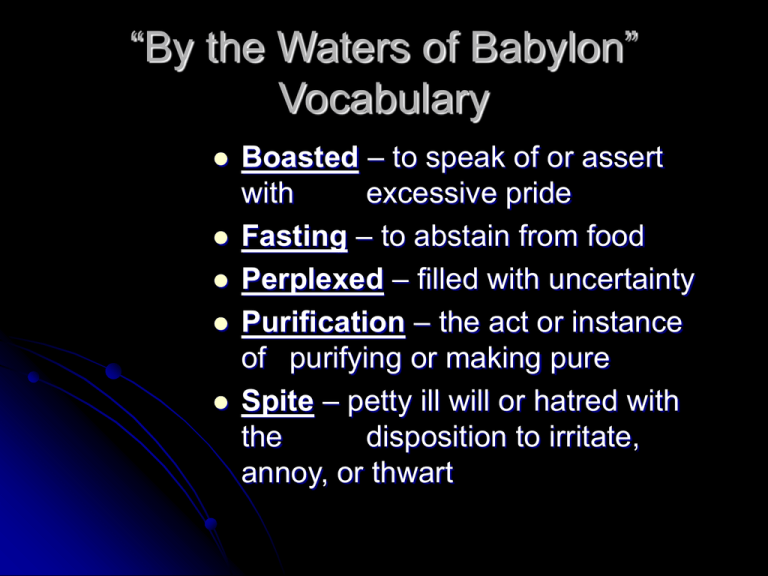
“By the Waters of Babylon” Vocabulary Boasted – to speak of or assert with excessive pride Fasting – to abstain from food Perplexed – filled with uncertainty Purification – the act or instance of purifying or making pure Spite – petty ill will or hatred with the disposition to irritate, annoy, or thwart Take the following notes as you come in and answer the question at the bottom of the page: Apocalyptic fiction is: -a type of science fiction -Story is set in a world or civilization after a great disaster -Story takes place in a primitive non technological world - this kind of story is similar to a dystopia in some ways. Answer this Question: What movies, books, or TV shows have you seen are post apocalyptic and why? Themes “Downfall of Society” when technology grows faster than we can control it – a warning to learn from history “Spirit Walk” Where boys become men IF they survive -these days we have getting a driver’s license or getting a first real job. “Right of Passage” A dangerous challenge must be attempted and if successful, they were respected by elders. Biblical allusion The title "By the Waters of Babylon" is a clear allusion to Psalm 137 of the Bible, which begins "By the Waters of Babylon I sat down and wept.“ The Israelites lost their "promised land" of Israel from which they have been exiled. Their homeland was destroyed and its people scattered. The message of the short story’s allusion: the eventual threat of self-destruction if we are unable to curb our thirst for knowledge - and not "eat it too fast." Read Psalm 137 and respond. How does the title’s Biblical Allusion connect to the theme of the story. Answer in paragraph form. By the rivers of Babylon we sat and wept when we remembered Zion. 2 There on the poplars we hung our harps, 3 for there our captors asked us for songs, our tormentors demanded songs of joy; they said, "Sing us one of the songs of Zion!" 4 How can we sing the songs of the LORD while in a foreign land? 5 If I forget you, O Jerusalem, may my right hand forget its skill . 6 May my tongue cling to the roof of my mouth if I do not remember you, if I do not consider Jerusalem my highest joy. 7 Remember, O LORD, what the Edomites did on the day Jerusalem fell. "Tear it down," they cried, "tear it down to its foundations!" 8 O Daughter of Babylon, doomed to destruction, happy is he who repays you for what you have done to us9 he who seizes your infants and dashes them against the rocks. First-person Narrator John - coming into manhood and must complete a dangerous right of passage before he is accepted by his father and the elders. A naïve narrator as he tells his story My father is a priest; I am the son of a priest. I have been in the Dead Places near us, with my father—at first, I was afraid. When my father went into the house to search for the metal, I stood by the door and my heart felt small and weak. Literary Elements… Allusion- reference to something in a story that the author assumes most readers will already know Setting: Believed to be New York City in the future after warfare (written 8 years before the first atom bomb) Conflict- Man vs. himself John must face his fears by visiting the Place of the Gods Man vs. Nature – John is put in situations where he must survive against nature itself Man vs Man – Will John question what he cannot understand about other men’s laws? Journal When is it right for government leaders to omit the truth in order to protect someone? Does society have a right to know the full truth? Based on what we have seen in Harrison Bergeron, can this have dire consequences?
